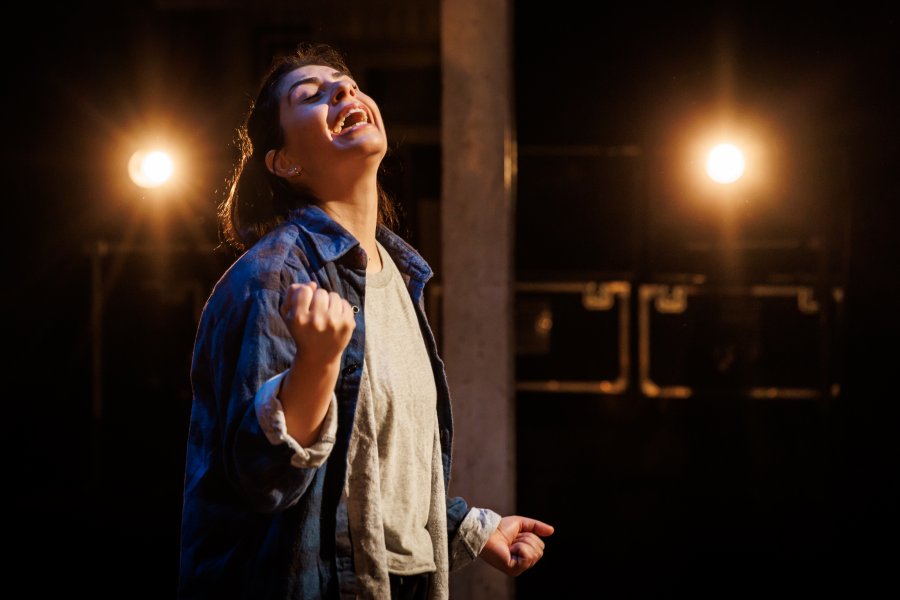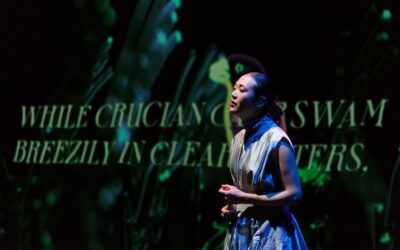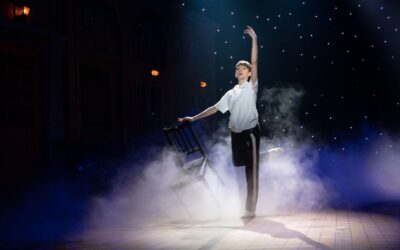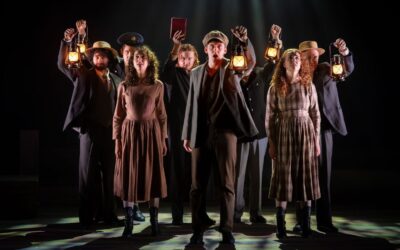By Darby Turnbull
I’ve had the pleasure of seeing Kerosene and Sirens individually and each were on my list of theatrical highlights for 2021 and 2022 respectively. It’s a rare treat to be able to revisit a piece, rarer still with the original creatives, and it’s long been the dramaturgical aim to present the two of them together.
Written by Benjamin Nichol, in collaboration with performer Izabella Yena, and directed by Liv Satchel, these two solo plays offer some of the rawest, most lyrical and powerful local theatre and they’ve only gotten better with a second exhibition.
Nichol’s writing has a way of seeping itself into your consciousness, alternately leaving a tight knot of dread in the gut and a tingle in the nerves. Each creative has such a full blooded insight into the deepest essences of these two characters that it feels like they can take them anywhere, as such, there are plenty of knowing laughs amongst their heartbreak, both mundane and existential.
Both feature isolated characters, adept at surviving day to day but with only the most sporadic connections to their lives and the people around them. Both find one person able to get them in touch with the tenderest parts of their humanity, and each must reckon with the loss of it when they have nothing to anchor them.
For Millie (Izabella Yena), it’s her best friend Annie, her fiercest protector and soul mate. For Eden (Benjamin Nichol), a young gay man living in a small town, it’s David, an exotic, sophisticated drag queen who exposes him to possibilities outside his cleaning job, singing at church and an endless stream of impersonal grindr hook-ups.
Of course, Annie and David are unequal to such consuming devotion and become physically untethered. Lifelong friend Annie loses herself into an abusive relationship and David cannot stand more than a few weeks back in the town he escaped and only returned to say goodbye to his estranged father. Millie and Eden are both balms, but essentially don’t receive it in the kind of way that will sustain them.
They’re characters that are rarely represented as faithfully and organically as this and it displays how essential it is to support the development of working class voices on our stages. Each line is resonant in the toil and labour involved in building up a meagre existence, and the small wins, saving money, making something your own, and the disaffectedness of feeling invisible and neglected by the things you might think you want if they were within in your reach, but they’re not, so why grasp? These stories aren’t necessarily hopeful or self actualising, but they’re honest and shine with essential moments of grace and dignity.
Yena’s Millie is once again superb. After two and a half years her performance has only gotten harder, wearier, the moments where she melts more tender and her rage more ferocious. She’s someone who loves deeply, but doesn’t know how. She scares people with her willingness to fight back with both her words and her fists, and her idealistic fixation on Annie culminates in an incendiary act of retribution against the perpetrator of her abuse. Her vocal and physical stamina is mighty and she dominates the space with the tenacity of a true star.

Likewise, Nichol as Eden’s edges have become sharper and his energy much weirder. He’s a singular performer, his movements are so fluid he could be made of water. He puts his body and voice through some extraordinarily visceral developments. I can’t think of any other actors working today who can do what he can with such specificity. He’s able to show Eden participating in his own degradation, but illuminated by the possibility of something more than he is and the crushing weight of its defeat. He’s also an uncanny mimic, slipping into seamless characterisations as if he’s been possessed by them, which integrates beautifully into Eden’s ability to disassociate from himself.
In contrast, Yena’s take on other characters within her narrative are all explicitly the more grounded in Millie’s repetitions.
Witnessing both pieces back-to-back (you have the option to see one or the other, but I highly encourage the double penetration experience) I marvelled at seeing two such radically different performers so linked with each other even when the other isn’t physically present – each take on a co-directional role and, as mentioned, Yena had input into the writing. I sincerely hope we get the opportunity to see them onstage together as soon as possible.
Liv Satchell’s production has been beautifully adapted into the forty-five downstairs space. Once again, there’s no set and Harrie Hogan’s lighting innovatively evokes location and emotional states. Likewise, Connor Ross has a pulsating soundscape beneath both plays, utilizing multiple shades from wistful to aggressive.
Satchell’s curation of two performances that are so deep in imagery and emotional immediacy is a brilliant display of unobtrusive but essential facilitation.
This is a theatrical opportunity not to be missed
Images: Darren Gill





